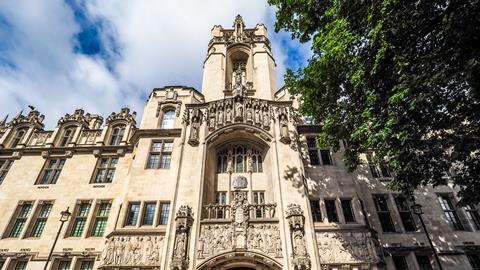There is no ‘bright line rule of law’ that voluntarily incurred losses are irrecoverable, the Supreme Court has decreed. The decision followed an appeal by engineering consultancy firm URS Corporation against a ruling that it was liable for the costs of repairs carried out by BDW Trading to developments it owned.
BDW - the brand names of which include well-known developers such as Barratt Homes - said the repairs were necessary due to defects which were a result of URS’s failure to exercise reasonable skill and care in the provision of its design services.
In URS Corporation Ltd v BDW Trading Ltd URS argued the remedial works had been undertaken after BDW had ceased to have any proprietary interest in the developments and in the absence of any enforceable obligation to undertake such repairs.
URS argued there is a ‘voluntariness principle’, which meant the loss in this case fell outside the scope of the duty assumed by URS or was not within URS’s contemplation as a serious possibility at the time the contract was made and therefore were too remote.
Lord Hamblen and Lord Burrows, in a unanimous judgment dismissing the appeal, gave a hypothetical example where a passer-by, who enjoys DIY, notices solar panels on a newly-built house have become loose and voluntarily carries out the necessary repairs, then demands payment.
The judges said it was clear a claim in negligence against the builders would not succeed, ‘most obviously because, as there was no assumption of responsibility by the builders to the passer-by, there would be no duty of care owed to the passer-by by the builders’, they explained. ‘There would be no need to rely on any principle of voluntariness to explain that result.
'In contrast to that hypothetical example, it is not in dispute that, based on the assumption of responsibility, there was a breach of the duty of care owed by URS to BDW not to cause BDW pure economic loss.
'The case law does not support the submission that there is a bright line rule of law that voluntarily incurred loss is outside the scope of the duty of care or too remote’, the judges said. They added voluntariness could be considered to have broken the chain of causation or could be considered as an aspect of mitigation, but did not create a rule of law in relation to either concept.




























No comments yet